2013 Awards for Outstanding Research
Award for Postgraduate Contribution to Urban Affairs
 Dr. Michael Martin received his Master’s degree in Urban Studies in 1995 and his doctoral degree in 2003 from the University of Wisconsin-Milwaukee. For the last 25 years, Michael Martin has dedicated himself to the betterment of low-income persons in Milwaukee and Wisconsin. He has worked for Milwaukee County, the Social Development Commission and the City of Milwaukee. In his current position as a Senior Community Planning and Development Representative with the U.S. Department of Housing and Urban Development, Dr. Martin oversees $75 million dollars of Community Planning and Development funds that includes the City of Milwaukee. Since receiving his PhD in 2003, he has been an Adjunct Professor of Urban Planning and a Lecturer at the Center for Latin American and Caribbean Studies at UWM. In 2007, his dissertation on Latino Residential Segregation was published by Routledge Press. His most recent academic focus has been on the social, economic and physical development of Latin American cities and U.S. barrios. He recently led a study abroad class to Havana, Cuba, for UWM’s School of Architecture and Urban Planning.
Dr. Michael Martin received his Master’s degree in Urban Studies in 1995 and his doctoral degree in 2003 from the University of Wisconsin-Milwaukee. For the last 25 years, Michael Martin has dedicated himself to the betterment of low-income persons in Milwaukee and Wisconsin. He has worked for Milwaukee County, the Social Development Commission and the City of Milwaukee. In his current position as a Senior Community Planning and Development Representative with the U.S. Department of Housing and Urban Development, Dr. Martin oversees $75 million dollars of Community Planning and Development funds that includes the City of Milwaukee. Since receiving his PhD in 2003, he has been an Adjunct Professor of Urban Planning and a Lecturer at the Center for Latin American and Caribbean Studies at UWM. In 2007, his dissertation on Latino Residential Segregation was published by Routledge Press. His most recent academic focus has been on the social, economic and physical development of Latin American cities and U.S. barrios. He recently led a study abroad class to Havana, Cuba, for UWM’s School of Architecture and Urban Planning.
 Aaron Wolfe-Bertling received his Master’s degree in Urban Affairs from the University of Wisconsin-Milwaukee in 1979. Throughout his career, he has demonstrated a lifelong commitment to progressive civic values reflected in an accomplished career revitalizing central cities. Over his career he has built and renovated more than six hundred units of mixed income housing, generating over $100 million dollars of public-private investment, creating shelter and jobs for thousands of poor and working class residents, and revitalizing neighborhoods. His accomplished career has taken him from Milwaukee and Beloit, Wisconsin, to Ogden Utah, to his current position in Covington, Kentucky, where he directs the Community Housing Resource Group, a consortium of Covington’s Housing Department and Housing Authority. Wolfe-Bertling began his professional career in Milwaukee as a community organizer with the East Side Housing Action Committee or ESHAC. During his tenure, ESHAC became Milwaukee’s largest and most sophisticated Community Development Corporation, launching innovative projects like a nonprofit realty firm, neighborhood newspaper, a small business association, and the Locust Street Festival. His more recent accomplishments include overseeing the building and renovation of more than 400 homes and streamlining the management of nearly 2,000 publicly assisted housing units in Covington, Kentucky.
Aaron Wolfe-Bertling received his Master’s degree in Urban Affairs from the University of Wisconsin-Milwaukee in 1979. Throughout his career, he has demonstrated a lifelong commitment to progressive civic values reflected in an accomplished career revitalizing central cities. Over his career he has built and renovated more than six hundred units of mixed income housing, generating over $100 million dollars of public-private investment, creating shelter and jobs for thousands of poor and working class residents, and revitalizing neighborhoods. His accomplished career has taken him from Milwaukee and Beloit, Wisconsin, to Ogden Utah, to his current position in Covington, Kentucky, where he directs the Community Housing Resource Group, a consortium of Covington’s Housing Department and Housing Authority. Wolfe-Bertling began his professional career in Milwaukee as a community organizer with the East Side Housing Action Committee or ESHAC. During his tenure, ESHAC became Milwaukee’s largest and most sophisticated Community Development Corporation, launching innovative projects like a nonprofit realty firm, neighborhood newspaper, a small business association, and the Locust Street Festival. His more recent accomplishments include overseeing the building and renovation of more than 400 homes and streamlining the management of nearly 2,000 publicly assisted housing units in Covington, Kentucky.
Award for Outstanding Research in Urban Studies
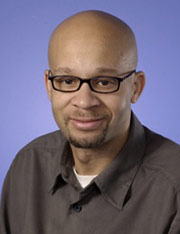 Ronald Smith received this year’s Scott Greer award for Outstanding Research in Urban Studies. Ron is a doctoral student in Urban Studies. He graduated in 2005 with a bachelor’s degree in professional communication from Marquette University. Four years later, he earned a Master’s in Leadership Studies at Marquette. In his full-time professional life, Ron serves as an assistant managing editor at the Milwaukee Journal Sentinel, where he works regularly as the Page One editor. He also leads the copy desk that enforces editing standards for the Pulitzer Prize-winning news organization. A lifelong journalist, Ron has also worked at the Los Angeles Times, Newsday, and The Oregonian in Portland.
Ronald Smith received this year’s Scott Greer award for Outstanding Research in Urban Studies. Ron is a doctoral student in Urban Studies. He graduated in 2005 with a bachelor’s degree in professional communication from Marquette University. Four years later, he earned a Master’s in Leadership Studies at Marquette. In his full-time professional life, Ron serves as an assistant managing editor at the Milwaukee Journal Sentinel, where he works regularly as the Page One editor. He also leads the copy desk that enforces editing standards for the Pulitzer Prize-winning news organization. A lifelong journalist, Ron has also worked at the Los Angeles Times, Newsday, and The Oregonian in Portland.
USP Dissertation Research Grant Award
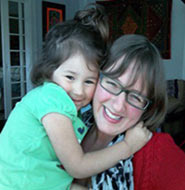 Dr. Jenny Cadenas (Curtis) received the USP Dissertation Research Grant award for her research on urban agriculture in Milwaukee. Cadenas has taught Urban Studies 250: Exploring the Urban Environment and other courses in Urban Studies at UWM.
Dr. Jenny Cadenas (Curtis) received the USP Dissertation Research Grant award for her research on urban agriculture in Milwaukee. Cadenas has taught Urban Studies 250: Exploring the Urban Environment and other courses in Urban Studies at UWM.
2012 Awards for Outstanding Research
Postgraduate Achievement in Advancing Understanding of Urban Social Institutions
 Dr. Edward J. Gumz received his Ph.D. in Urban Social Institutions from UWM in 1986. His dissertation examined the role of social workers, family court commissioners, and judges in the Milwaukee County Family Court, and was later published as a book under the title, Professionals and Their Work in the Family Divorce Court (Charles C. Thomas Publishers, 1987). Dr. Gumz taught in the Department of Social Work at the University of Wisconsin-Oshkosh and Loyola University Chicago School of Social Work, where he was chairman of the Undergraduate Social Work Program and continues to teach in the MSW program there. He achieved tenure at both institutions and taught in the area of social policy, examining its relevance for social work practice and educating social work students about strategies to use to effect change at both the organizational and institutional levels; he brought an important historical and sociological lens to his teaching and scholarship regarding the social welfare institution. He is active in several communities, serving on a number of boards of directors of mental health and social welfare organizations. In the tradition of the late Distinguished Professor Scott Greer, Dr. Gumz, by his scholarship and leadership, has truly demonstrated the spirit of the Urban Studies Programs.
Dr. Edward J. Gumz received his Ph.D. in Urban Social Institutions from UWM in 1986. His dissertation examined the role of social workers, family court commissioners, and judges in the Milwaukee County Family Court, and was later published as a book under the title, Professionals and Their Work in the Family Divorce Court (Charles C. Thomas Publishers, 1987). Dr. Gumz taught in the Department of Social Work at the University of Wisconsin-Oshkosh and Loyola University Chicago School of Social Work, where he was chairman of the Undergraduate Social Work Program and continues to teach in the MSW program there. He achieved tenure at both institutions and taught in the area of social policy, examining its relevance for social work practice and educating social work students about strategies to use to effect change at both the organizational and institutional levels; he brought an important historical and sociological lens to his teaching and scholarship regarding the social welfare institution. He is active in several communities, serving on a number of boards of directors of mental health and social welfare organizations. In the tradition of the late Distinguished Professor Scott Greer, Dr. Gumz, by his scholarship and leadership, has truly demonstrated the spirit of the Urban Studies Programs.
Postgraduate Contribution to Urban Affairs
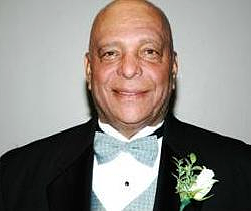 Mr. Charles M. Hill, Sr. received his Master’s degree in Urban Affairs from the University of Wisconsin-Milwaukee in 1968 (he was part of the first year program cohort, 1963-64). He has been known as an advocate for the disadvantaged throughout his life, starting as one of the leaders in the 1964 boycott of Milwaukee’s segregated schools. In 1970 he became the first African-American cabinet officer in Wisconsin and served at the pleasure of three Governors. During his tenure, he was instrumental in the creation of the state housing finance authority (WHEDA) and served as its Chairman. He also served on two Presidential task forces. As Executive Director of the Wisconsin Council on Criminal Justice he was instrumental in creating a new Children’s Code and a statewide Public Defender program. From 1978 until his retirement in February of 2000 he was Executive Vice President, Community Investment Officer, and Chief Operating Officer of the Federal Home Loan Bank of Chicago, and designed a number of innovative housing programs to serve low income families and individuals. He was commended by President Clinton for his achievements and continues in his advocacy role for those who are less fortunate. Since 2000 the Wisconsin Housing Collaborative presents the Charles M. Hill, Sr. Award for Housing Excellence to a pioneering recipient whose work has touched the lives of people in need.
Mr. Charles M. Hill, Sr. received his Master’s degree in Urban Affairs from the University of Wisconsin-Milwaukee in 1968 (he was part of the first year program cohort, 1963-64). He has been known as an advocate for the disadvantaged throughout his life, starting as one of the leaders in the 1964 boycott of Milwaukee’s segregated schools. In 1970 he became the first African-American cabinet officer in Wisconsin and served at the pleasure of three Governors. During his tenure, he was instrumental in the creation of the state housing finance authority (WHEDA) and served as its Chairman. He also served on two Presidential task forces. As Executive Director of the Wisconsin Council on Criminal Justice he was instrumental in creating a new Children’s Code and a statewide Public Defender program. From 1978 until his retirement in February of 2000 he was Executive Vice President, Community Investment Officer, and Chief Operating Officer of the Federal Home Loan Bank of Chicago, and designed a number of innovative housing programs to serve low income families and individuals. He was commended by President Clinton for his achievements and continues in his advocacy role for those who are less fortunate. Since 2000 the Wisconsin Housing Collaborative presents the Charles M. Hill, Sr. Award for Housing Excellence to a pioneering recipient whose work has touched the lives of people in need.
2011 Awards for Outstanding Research
Postgraduate Achievement in Advancing Understanding of Urban Social Institutions
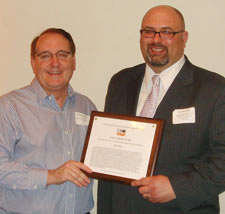 Dr. Eric Gass is the Director of Public Health Research and Policy for the City of Milwaukee Health Department and holds an Adjunct Assistant Professorship in the U.W.-Milwaukee School of Public Health. Dr. Gass has demonstrated tremendous professional and academic achievement and community leadership in the area of public health in the few short years since receiving his Ph.D. in Urban Studies in 2007. He has published ten peer-reviewed articles in the areas of university-community partnerships, racial differences in hospital admissions, and organizational culture. Upon receiving his Ph.D., he was appointed Assistant Professor at the Medical College of Wisconsin in the department of Family and Community Medicine. He also served as the Operations Manager for the Center for Healthy Families at the Medical College of Wisconsin for over six years. There he helped to obtain nearly $2.3 million in grants to support community-based health partnerships in Milwaukee and across the state. Dr. Gass’ active academic and governmental work and community leadership extend to serving on numerous elected and appointed boards and commissions throughout Milwaukee and Wisconsin; he is currently serving his second term on the Board of Directors for the Wisconsin Public Health Association, where he previously served as its Policy Development and Review committee chair, and is currently chairing a Health Care Reform sub-committee. In addition to his doctorate in Urban Studies from the University of Wisconsin-Milwaukee, Dr. Gass holds a B.S. in Psychology from U.W.-Green Bay, and a M.S. in Child Development and Family Studies from Purdue University.
Dr. Eric Gass is the Director of Public Health Research and Policy for the City of Milwaukee Health Department and holds an Adjunct Assistant Professorship in the U.W.-Milwaukee School of Public Health. Dr. Gass has demonstrated tremendous professional and academic achievement and community leadership in the area of public health in the few short years since receiving his Ph.D. in Urban Studies in 2007. He has published ten peer-reviewed articles in the areas of university-community partnerships, racial differences in hospital admissions, and organizational culture. Upon receiving his Ph.D., he was appointed Assistant Professor at the Medical College of Wisconsin in the department of Family and Community Medicine. He also served as the Operations Manager for the Center for Healthy Families at the Medical College of Wisconsin for over six years. There he helped to obtain nearly $2.3 million in grants to support community-based health partnerships in Milwaukee and across the state. Dr. Gass’ active academic and governmental work and community leadership extend to serving on numerous elected and appointed boards and commissions throughout Milwaukee and Wisconsin; he is currently serving his second term on the Board of Directors for the Wisconsin Public Health Association, where he previously served as its Policy Development and Review committee chair, and is currently chairing a Health Care Reform sub-committee. In addition to his doctorate in Urban Studies from the University of Wisconsin-Milwaukee, Dr. Gass holds a B.S. in Psychology from U.W.-Green Bay, and a M.S. in Child Development and Family Studies from Purdue University.
Postgraduate Contribution to Urban Affairs
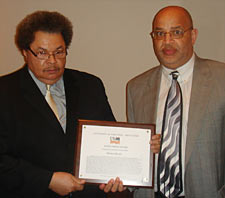 Dr. Michael Bonds is an Associate Professor at the University of Wisconsin-Milwaukee in the Department of Educational Policy and Community Studies. He is currently the President of the Milwaukee Public Schools’ Board of School Directors. Prior to that, he served as a Senior Fiscal Review Analyst and as a Community Development Block Grant consultant to the City of Milwaukee. Dr. Bonds received his doctorate in Urban Studies from the University of Wisconsin-Milwaukee in 1998. His research interests include community development issues, community problems and urban policies and analysis, public resources distributions, and issues related to African-American education. Dr. Bonds’ community, professional, and academic work have all contributed positively to our community; his work as a tireless advocate on behalf of MPS students and the important leadership he provides to the Milwaukee Public Schools reflect the highest values of an engaged urban scholar. This commitment to serving and empowering community can be seen in his academic writings; he has authored numerous articles and reports on welfare reform as well as journal articles on community development and racial disparities in education. In addition to his doctorate in Urban Studies, Dr. Bonds earned his BA in Criminal Justice, MS in Urban Affairs, and Master’s in Public Administration from the University of Wisconsin-Milwaukee.
Dr. Michael Bonds is an Associate Professor at the University of Wisconsin-Milwaukee in the Department of Educational Policy and Community Studies. He is currently the President of the Milwaukee Public Schools’ Board of School Directors. Prior to that, he served as a Senior Fiscal Review Analyst and as a Community Development Block Grant consultant to the City of Milwaukee. Dr. Bonds received his doctorate in Urban Studies from the University of Wisconsin-Milwaukee in 1998. His research interests include community development issues, community problems and urban policies and analysis, public resources distributions, and issues related to African-American education. Dr. Bonds’ community, professional, and academic work have all contributed positively to our community; his work as a tireless advocate on behalf of MPS students and the important leadership he provides to the Milwaukee Public Schools reflect the highest values of an engaged urban scholar. This commitment to serving and empowering community can be seen in his academic writings; he has authored numerous articles and reports on welfare reform as well as journal articles on community development and racial disparities in education. In addition to his doctorate in Urban Studies, Dr. Bonds earned his BA in Criminal Justice, MS in Urban Affairs, and Master’s in Public Administration from the University of Wisconsin-Milwaukee.
2010 Awards for Outstanding Research
Postgraduate Contribution to Urban Affairs
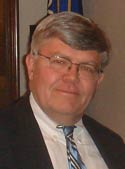 Mr. Jeff Eagan is the recipient of the “Scott Greer Award for Postgraduate Contribution to Urban Affairs.” Mr. Eagan is currently a Senior Program Manager in the White House Council on Environmental Quality, assisting the Federal Environmental Executive in “greening the government.” Previously, he served as a Program Coordinator for the US Department of Energy (DOE), most recently promoting sustainable environmental and energy practices for their Office of Environmental Policy and Assistance with a special focus on electronics stewardship or “green computing.” Earlier in his career, he helped pass and administer the Energy Employees Occupational Illness Program Act, a four billion dollar entitlement to provide compensation and health care to DOE workers sickened by exposure to dangerous substances in the production of nuclear weapons. Mr. Eagan received the 2008 DOE CIO Managerial Excellence Award, the 2009 DOE Health, Security, and Safety Achievement Award, and most recently the 2010 Fed 100 Award for government-wide leadership. In Washington D.C., prior to his federal service, he was Executive Director of the Long Term Care Campaign, Field Director of the National Council of Senior Citizens, and Health Care Lobbyist for Public Citizen and Ralph Nader. Earlier in Wisconsin, he served as Executive Director for the East Side Housing Action Coalition (ESHAC), the Allied Council of Senior Citizens, and Citizen Action of Wisconsin. Mr. Eagan received his Master’s degree in Urban Affairs from the University of Wisconsin – Milwaukee in 1978. In the tradition of the late Distinguished Professor Scott Greer, Mr. Eagan, by his work and leadership in the community, embodies the highest goals of the Urban Studies Programs.
Mr. Jeff Eagan is the recipient of the “Scott Greer Award for Postgraduate Contribution to Urban Affairs.” Mr. Eagan is currently a Senior Program Manager in the White House Council on Environmental Quality, assisting the Federal Environmental Executive in “greening the government.” Previously, he served as a Program Coordinator for the US Department of Energy (DOE), most recently promoting sustainable environmental and energy practices for their Office of Environmental Policy and Assistance with a special focus on electronics stewardship or “green computing.” Earlier in his career, he helped pass and administer the Energy Employees Occupational Illness Program Act, a four billion dollar entitlement to provide compensation and health care to DOE workers sickened by exposure to dangerous substances in the production of nuclear weapons. Mr. Eagan received the 2008 DOE CIO Managerial Excellence Award, the 2009 DOE Health, Security, and Safety Achievement Award, and most recently the 2010 Fed 100 Award for government-wide leadership. In Washington D.C., prior to his federal service, he was Executive Director of the Long Term Care Campaign, Field Director of the National Council of Senior Citizens, and Health Care Lobbyist for Public Citizen and Ralph Nader. Earlier in Wisconsin, he served as Executive Director for the East Side Housing Action Coalition (ESHAC), the Allied Council of Senior Citizens, and Citizen Action of Wisconsin. Mr. Eagan received his Master’s degree in Urban Affairs from the University of Wisconsin – Milwaukee in 1978. In the tradition of the late Distinguished Professor Scott Greer, Mr. Eagan, by his work and leadership in the community, embodies the highest goals of the Urban Studies Programs.
Postgraduate Achievement in Advancing Understanding of Urban Social Institutions
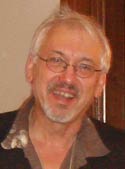 Dr. John Hagedorn is Professor of Criminology, Law, and Justice at the University of Illinois – Chicago and past Senior Research Fellow at the Great Cities Institute at the University of Illinois – Chicago. Dr. Hagedorn has been studying gangs and violence for the past twenty-five years and is the author of many books and articles on the subject. His books include: A World of Gangs: Armed Young Men and Gangsta Culture (Minneapolis, University of Minnesota Press, 2008) and People & Folks: Gangs, Crime, and the Underclass in a Rustbelt City (Chicago, Lakeview Press, 1998). He is co-editor of Female Gangs in America: Essays on Girls, Gangs, and Gender (Chicago, Lakeview Press, 1999) and edited Gangs in the Global City: Alternatives to Traditional Criminology (Champaign, University of Illinois Press, 2007). He was a Visiting Fellow at the UIC Institute for Research on Race and Public Policy in 2007, the Social Science Research Council Working Group on Youth in Organized Violence, 2004 – 2005, and a Great Cities Scholar, University of Illinois – Chicago, 2000 – 2001 & 2006. In addition, he created the website, www.gangresearch.net and currently teaches courses on gangs. He has received numerous awards and distinctions including the Hans Mattick Award for Distinguished Contributions to Criminology and the University of Illinois – Chicago Teaching Recognition Award. In 2000, he received the Distinguished Alumni Award from the UWM Alumni Association. He received his doctorate in Urban Studies in 1993 from the University of Wisconsin-Milwaukee. In the tradition of the late Distinguished Professor Scott Greer, Dr. Hagedorn, by his scholarship and leadership, has truly demonstrated the spirit of the Urban Studies Programs.
Dr. John Hagedorn is Professor of Criminology, Law, and Justice at the University of Illinois – Chicago and past Senior Research Fellow at the Great Cities Institute at the University of Illinois – Chicago. Dr. Hagedorn has been studying gangs and violence for the past twenty-five years and is the author of many books and articles on the subject. His books include: A World of Gangs: Armed Young Men and Gangsta Culture (Minneapolis, University of Minnesota Press, 2008) and People & Folks: Gangs, Crime, and the Underclass in a Rustbelt City (Chicago, Lakeview Press, 1998). He is co-editor of Female Gangs in America: Essays on Girls, Gangs, and Gender (Chicago, Lakeview Press, 1999) and edited Gangs in the Global City: Alternatives to Traditional Criminology (Champaign, University of Illinois Press, 2007). He was a Visiting Fellow at the UIC Institute for Research on Race and Public Policy in 2007, the Social Science Research Council Working Group on Youth in Organized Violence, 2004 – 2005, and a Great Cities Scholar, University of Illinois – Chicago, 2000 – 2001 & 2006. In addition, he created the website, www.gangresearch.net and currently teaches courses on gangs. He has received numerous awards and distinctions including the Hans Mattick Award for Distinguished Contributions to Criminology and the University of Illinois – Chicago Teaching Recognition Award. In 2000, he received the Distinguished Alumni Award from the UWM Alumni Association. He received his doctorate in Urban Studies in 1993 from the University of Wisconsin-Milwaukee. In the tradition of the late Distinguished Professor Scott Greer, Dr. Hagedorn, by his scholarship and leadership, has truly demonstrated the spirit of the Urban Studies Programs.
2009 Awards for Outstanding Research
Award for Postgraduate Achievement in Advancing Understanding of Urban Social Institutions
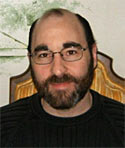 Dr. Robert Silverman is the recipient of the “Scott Greer Award for Postgraduate Achievement in Advancing Understanding of Urban Social Institutions.” He is an Associate Professor of Urban and Regional Planning at the University at Buffalo. He is also a Senior Research Associate in the Center for Urban Studies at UB. Rob holds a B.S. in Political Science from Arizona State University, a M.P.A. in Public Administration from Arizona State University, and a Ph.D. in Urban Studies from the University of Wisconsin-Milwaukee. Dr. Silverman’s research focuses on the role of community-based organizations in urban neighborhoods, the nonprofit sector, and inequality in inner city housing markets. His work has been published in Urban Studies, Urban Affairs Review, The Journal of Social History, The Journal of Black Studies, Action Research, The Journal of Contemporary Ethnography, Community Development Journal, and other journals. His primary teaching interests are in the areas of community development and fair housing. He currently teaches courses in community development, public finance, nonprofit management and research methods.
Dr. Robert Silverman is the recipient of the “Scott Greer Award for Postgraduate Achievement in Advancing Understanding of Urban Social Institutions.” He is an Associate Professor of Urban and Regional Planning at the University at Buffalo. He is also a Senior Research Associate in the Center for Urban Studies at UB. Rob holds a B.S. in Political Science from Arizona State University, a M.P.A. in Public Administration from Arizona State University, and a Ph.D. in Urban Studies from the University of Wisconsin-Milwaukee. Dr. Silverman’s research focuses on the role of community-based organizations in urban neighborhoods, the nonprofit sector, and inequality in inner city housing markets. His work has been published in Urban Studies, Urban Affairs Review, The Journal of Social History, The Journal of Black Studies, Action Research, The Journal of Contemporary Ethnography, Community Development Journal, and other journals. His primary teaching interests are in the areas of community development and fair housing. He currently teaches courses in community development, public finance, nonprofit management and research methods.
Award for Postgraduate Contribution to Urban Affairs
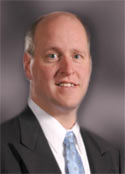 Dr. Patrick Falvey is the recipient of the “Scott Greer Award for Postgraduate Contribution to Urban Affairs.” He is the Senior Vice President and Chief Integration Officer for Aurora Health Care, Inc. Patrick holds a pre-medicine B.S. from the University of Wisconsin-Whitewater, a M.S. in Industrial/Organizational Psychology from the University of Wisconsin-Oshkosh, and a Ph.D. in Urban Studies from the University of Wisconsin- Milwaukee. Since the early 1990s, Dr. Falvey has served in a number of capacities in the health care field with oversight responsibility for quality improvement, organizational measurement and management of key health care functions at Aurora Health Care, Inc: Coordinator of Productivity Improvement, Administrative Director of Care Management/Quality, and since 2007, Senior Vice President/Chief Integration Officer. In addition, Dr. Falvey serves as a member on several state and national organizations creating and implementing health care quality/measurement policy: member of the Premier/ Institute for Healthcare Improvement QUEST initiative and as an Examiner for the Malcolm Bridge National Quality Award. He has received several awards and honor distinctions for his professional work in the field. Dr. Falvey has also been an active researcher, investigating outcomes of care management and quality improvement in the delivery of health care services. He has authored and coauthored numerous reports and papers.
Dr. Patrick Falvey is the recipient of the “Scott Greer Award for Postgraduate Contribution to Urban Affairs.” He is the Senior Vice President and Chief Integration Officer for Aurora Health Care, Inc. Patrick holds a pre-medicine B.S. from the University of Wisconsin-Whitewater, a M.S. in Industrial/Organizational Psychology from the University of Wisconsin-Oshkosh, and a Ph.D. in Urban Studies from the University of Wisconsin- Milwaukee. Since the early 1990s, Dr. Falvey has served in a number of capacities in the health care field with oversight responsibility for quality improvement, organizational measurement and management of key health care functions at Aurora Health Care, Inc: Coordinator of Productivity Improvement, Administrative Director of Care Management/Quality, and since 2007, Senior Vice President/Chief Integration Officer. In addition, Dr. Falvey serves as a member on several state and national organizations creating and implementing health care quality/measurement policy: member of the Premier/ Institute for Healthcare Improvement QUEST initiative and as an Examiner for the Malcolm Bridge National Quality Award. He has received several awards and honor distinctions for his professional work in the field. Dr. Falvey has also been an active researcher, investigating outcomes of care management and quality improvement in the delivery of health care services. He has authored and coauthored numerous reports and papers.
2008 Awards for Outstanding Research
Award for Postgraduate Contributions to Urban Affairs
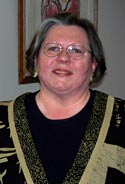 Ms. Linda Sunde is the recipient of the “Scott Greer Award for Postgraduate Contributions to Urban Affairs.” She received her Masters Degree in Urban Affairs and a Bachelors Degree in Political Science, both from the University of Wisconsin – Milwaukee. Linda Sunde is Wisconsin State Director for the Corporation for National and Community Service, the federal agency responsible for VISTA, AmeriCorps, Senior Corps, and Learn and Serve programs. Sunde’s previous experience includes Assistant Director of the Center for Urban Initiatives and Research at the University of Wisconsin – Milwaukee; Project Director for the Marquette University – Community Partnership; Community Development Director for the Campus Circle Project at Marquette University, Instructor at Milwaukee Area Technical College, and Project Associate with the Harambee Human Services Project. She served for 15 years as Executive Director and VISTA supervisor at Milwaukee Associates in Urban Development (MAUD), where she was also a VISTA volunteer in the early 1970s. Sunde currently serves as President of the Community Development Society, an international association of community development scholars and practitioners. She received the Society’s Duane Gibson Distinguished Service Award in 2003.
Ms. Linda Sunde is the recipient of the “Scott Greer Award for Postgraduate Contributions to Urban Affairs.” She received her Masters Degree in Urban Affairs and a Bachelors Degree in Political Science, both from the University of Wisconsin – Milwaukee. Linda Sunde is Wisconsin State Director for the Corporation for National and Community Service, the federal agency responsible for VISTA, AmeriCorps, Senior Corps, and Learn and Serve programs. Sunde’s previous experience includes Assistant Director of the Center for Urban Initiatives and Research at the University of Wisconsin – Milwaukee; Project Director for the Marquette University – Community Partnership; Community Development Director for the Campus Circle Project at Marquette University, Instructor at Milwaukee Area Technical College, and Project Associate with the Harambee Human Services Project. She served for 15 years as Executive Director and VISTA supervisor at Milwaukee Associates in Urban Development (MAUD), where she was also a VISTA volunteer in the early 1970s. Sunde currently serves as President of the Community Development Society, an international association of community development scholars and practitioners. She received the Society’s Duane Gibson Distinguished Service Award in 2003.
Award for Postgraduate Achievement in Advancing Understanding of Urban Social Institutions
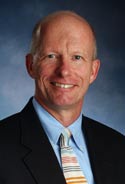 Dr. Gary T. Henry is the recipient of the “Scott Greer Award for Postgraduate Achievement in Advancing Understanding of Urban Social Institutions.” He received a Ph.D. from the Urban Social Institutions program at the University of Wisconsin-Milwaukee in 1982 and bachelors and masters degrees in Political Science from the University of Kentucky. Gary T. Henry holds the Duncan MacRae ’09 and Rebecca Kyle MacRae Professorship of Public Policy in the Department of Public Policy and directs the Carolina Institute for Public Policy at the University of North Carolina at Chapel Hill. He also holds an appointment as Senior Statistician in Frank Porter Graham Institute for Child Development at UNC-Chapel Hill. Henry previously held the William Neil Reynolds Distinguished University Visiting Professorship at UNC; served as a professor in the Andrew Young School of Policy Studies, Department of Political Science, and Department of Education Policy Studies at Georgia State University, and the Department of Public Policy at Georgia Institute of Technology. He previously served as the Director of Evaluation and Learning Services for the David and Lucile Packard Foundation.
Dr. Gary T. Henry is the recipient of the “Scott Greer Award for Postgraduate Achievement in Advancing Understanding of Urban Social Institutions.” He received a Ph.D. from the Urban Social Institutions program at the University of Wisconsin-Milwaukee in 1982 and bachelors and masters degrees in Political Science from the University of Kentucky. Gary T. Henry holds the Duncan MacRae ’09 and Rebecca Kyle MacRae Professorship of Public Policy in the Department of Public Policy and directs the Carolina Institute for Public Policy at the University of North Carolina at Chapel Hill. He also holds an appointment as Senior Statistician in Frank Porter Graham Institute for Child Development at UNC-Chapel Hill. Henry previously held the William Neil Reynolds Distinguished University Visiting Professorship at UNC; served as a professor in the Andrew Young School of Policy Studies, Department of Political Science, and Department of Education Policy Studies at Georgia State University, and the Department of Public Policy at Georgia Institute of Technology. He previously served as the Director of Evaluation and Learning Services for the David and Lucile Packard Foundation.
Henry has evaluated a variety of policies and programs, including North Carolina’s Disadvantaged Student Supplemental Fund, Georgia’s Universal Pre-K, public information campaigns, and the HOPE Scholarship as well as school reforms and accountability systems. The author of Practical Sampling (Sage 1990), Graphing Data (Sage 1995) and co-author of Evaluation: An Integrated Framework for Understanding, Guiding, and Improving Policies and Programs (Jossey-Bass 2000).
Henry has published extensively in the fields of evaluation and education policy. He received the Outstanding Evaluation of the Year Award from the American Evaluation Association in 1998 for his work with the Georgia’s Council for School Performance and the Joseph S. Wholey Distinguished Scholarship Award in 2001 from the American Society for Public Administration and the Center for Accountability and Performance along with Steve Harkreader. Dr. Henry currently serves on the Standing Committee for Systemic Reform, Institute of Education Sciences, U.S. Department of Education. Recently, he completed service on a National Research Council/National Academies of Sciences committee assessing the effects of “green schools” on the health and productivity of teachers and students and co-authored the committee report.
1999-2007
2007 – Olmedo Varela & Marie Wolff
2006 – Janice Wilberg & William Powell
2005 – Edward jj Olson & Avelardo Valdez
2004 – Pamela Fendt & Darlene Weis
2003 – Dorothy K. Dean & Lois M. Quinn
2002 – William R. Tisdale & Margaret J. Bull
2001 – David Halbrooks & Neville S. Arachchige Don
2000 – Daniel J. Diliberti & Anna Maria Santiago
1999 – Donald Sykes & Henry A. Foley